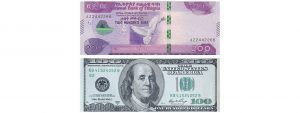Black Market and Its Disadvantage on Ethiopian Banks in 2023

The black market is a business or market that functions outside official government regulations and taxation. This unauthorized “hidden” economic illegal activity commonly supports money laundering (like dollar to birr black market), drug trafficking, and tax evasion.
Banks in Ethiopia are impacted by the black market more and more nowadays. As the exchange rate increases in the black market, there will be a significant decrease in the country’s currency, an increase in the cost of borrowing, and a risk of fraud and illegal bank notes. Because there is a lack of regulation and government control, the banks are subject to money laundering and other tax fraud.
To combat the black market, The government set forth various actions, including anti-money laundering regulations, stepping up clients’ proper research on and its consequences, and using advanced analytics to spot suspicious activities.
In October 2022, 391 bank accounts were closed by The National Bank of Ethiopia because of illegal money transfers. In addition to this, the government sent reward money to individuals who gave information about illicit money transfers and persons engaged in the activity. The National Bank of Ethiopia governor added, “it is necessary to take administrative and legal measures against people involved in these illegal acts.”
However, The government’s restriction and regulations on exchange control lead to black markets, which adds to the current inflation. Exchange regulations could also have unexpected results that could harm society and the economy.
Suppose the National Bank of Ethiopia is only willing to meet some citizens’ demands for foreign exchange at its official exchange rate. In that case, those whose demand is refused will be willing to pay the price over the official rate.
If such chances are offered, those who earn or borrow foreign money will be tempted to sell on the black market rather than the National Bank of Ethiopia, putting the banks at risk of losing clients.
The Current Exchange Rate in The Black Market in Comparison with The Official Exchange Rate
Currency |
Official Exchange Rate |
Black Market Exchange Rate |
|
US Dollar |
57.50 ETB | 96.44 ETB |
|
Euro |
57.87 ETB | 104.45 ETB |
|
Swiss Franc |
54.98 ETB | 104.56 ETB |
|
Australian Dollar |
33.70 ETB | 67.38 ETB |
|
Kuwaiti Dinar |
166.91 ETB | 317.21 ETB |
|
Swedish Krona |
4.65 ETB | 9.29 ETB |
|
Canadian Dollar |
40.09 ETB | 72.22 ETB |
|
Pound Sterling |
65.29 ETB | 118.14 ETB |
The exchange rate listed above is the country’s current currency exchange rate. The Black Market Exchange Rate mainly benefits individuals with foreign currency and affects the country’s economy. The market value of the black market is increased because of inflation, recession, and some government policies.
A factor that makes it riskier to keep local currency is inflation, an economic occurrence that happens when the prices of goods and services grow over time. As inflation rises, the value of local currency declines, and devalued local currency has reduced purchasing power.
An economic downturn is referred to as a recession. Recessions cause businesses and individuals to cut back on spending, which lowers economic activity. When this occurs, consumers may turn to the black market to buy items that aren’t supplied through legal means.
Conclusion
Black Market is a significant threat to banks and other financial institutions. Banks are taking several measures to combat the black market, but more needs to be done to ensure that the it does not continue to threaten the financial system.